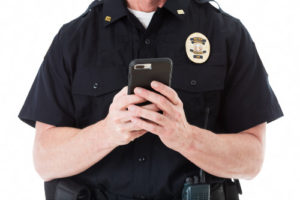 In today’s day and age, you rely on technology more than ever. Phones, computers, and tablets play a massive role in your life, and many will find it hard to remember a time when your device wasn’t a part of everyday life. Your cell phone, in particular, is perhaps used more than any other device in your arsenal and contains a considerable amount of sensitive personal information. As such, it’s of little surprise that law enforcement officials often have a desire to access this information, especially if you’ve been arrested or are the center of an investigation.
In today’s day and age, you rely on technology more than ever. Phones, computers, and tablets play a massive role in your life, and many will find it hard to remember a time when your device wasn’t a part of everyday life. Your cell phone, in particular, is perhaps used more than any other device in your arsenal and contains a considerable amount of sensitive personal information. As such, it’s of little surprise that law enforcement officials often have a desire to access this information, especially if you’ve been arrested or are the center of an investigation.
However, it’s important to understand that you have a legal right to keep your phone and its contents free from an unreasonable search. Florida police officers can’t simply compel you to hand over access to the contents of your phone. In short, while police officers may take your phone from you during an arrest, they can’t conduct a search of its contents without a warrant or probable cause. If you think you’ve been the victim of an illegal search, contact attorney Brian Gabriel for help protecting your rights.
Understanding Your Fourth Amendment Rights
The Fourth Amendment protects individuals from unreasonable searches and seizures by the government. As it relates to searching your cell phone, the Fourth Amendment protects the information on your computer, cell phone, home, vehicle, business, and any other object or place where citizens should have a reasonable expectation of privacy. In most cases, police can only search through your phone after you’ve given your consent or if they have a warrant from a judge.
However, there are a few rare exceptions to the Fourth Amendment. It isn’t a guarantee against all searches and seizures, but rather those that are deemed unreasonable under the law. Whether a particular type of search is considered reasonable in the eyes of the law depends on the scale of legitimate government interest, such as public safety.
When Can Your Cell Phone Be Legally Searched?
If a police officer doesn’t get your consent to search, they will have to get a search warrant from a judge. To do so, the judge has to be provided with a strong case of why the search is necessary. A legal search without a warrant can only be conducted in the following instances:
- The owner provides consent
- Search is on public school property
- Evidence can be seen publicly, such as a photo on the screen of the phone
- Hot pursuit, which means the police believe the suspect can easily destroy evidence related to the reason for the chase
It’s important to remember that you can refuse to allow a search of your person, your home, or any of your personal belongings, including your phone. If you refuse a search, a warrant must be obtained for the search to take place. If you feel your rights have been violated in any way, it’s always best to contact a lawyer immediately.
When Can Your Cell Phone Be Legally Searched?
If a police officer searches your phone without a warrant or your consent, it’s crucial that you object to the search. Contact an experienced West Palm Beach criminal defense attorney as soon as possible so they can begin investigating your case. If the illegal search resulted in evidence that was used to charge you with a crime, your lawyer might be able to help you get the illegal evidence dismissed from the case.
Contact an Experienced Criminal Defense Attorney in West Palm Beach
If you’ve been arrested for a criminal offense or are the center of criminal investigation and believe your cell phone has been illegally searched, consider getting in touch with experienced criminal defense attorney Brian Gabriel from the Law Office of Gabriel & Gabriel. After meeting with you to discuss the incident in question, Brian Gabriel may be able to help determine the most effective strategy to execute based on the circumstances of your case.
Attorney Brian Gabriel has served the community of West Palm Beach for more than 30 years as a criminal defense lawyer. He understands the complexities that are involved in these cases and can help protect your reputation and future. After an arrest, you can be assured that you’re in good hands and that attorney Brian Gabriel will fight for your rights. Call (561) 622-5575 or complete a contact form for a free consultation.


